Reeling under the effects of the Covid-19 crisis that has necessitated drastic transformation in the management and operations of businesses, worldwide—the need for social redress and initiatives designed to help inculcate socio-development projects in the region is of critical importance.
The communal thrust for ‘People Empowerment’ is a crucial component in the social development programs and policy agendas set out by the member states of the Eastern Caribbean.
As a precursor to the work ahead, sub-regional government ministers met last week, for the annual Organisation of Eastern Caribbean States (OECS) Council of Ministers for Human and Social Development Meeting. The meeting, which was held virtually from October 12-13; culminated with an enlightening panel discussion followed by a virtual press briefing.
The theme for this year’s conference was: “Data and Dialogue for Direction: Using Information and Engaging People to set the new Social Agenda in the COVID19 Era”.
“Meeting of ministers on social protection serves as a reminder that there is still a long way to go …the work that we have to do in bringing our people to a state of empowerment is long work and grant work, but it is the work that is worth the sweat,” noted Dee-Ann Kentish- Rodgers, the Minister for Social Development and Education, in Anguilla.
Kentish-Rodgers was amongst the panelists that provided a broad overview of the social development programmes in the sub-region.
She added that as ministers and members of this grouping, “our obligation is to continue to collaborate, continue to support one another and to see how we can become active ambassadors for the mission of the OECS and the mission of regional integration.”
The minister said this fulfillment can be achieved through “the power of us coming together in these forums and to see how eventually these forums take root into actual concrete actions.”
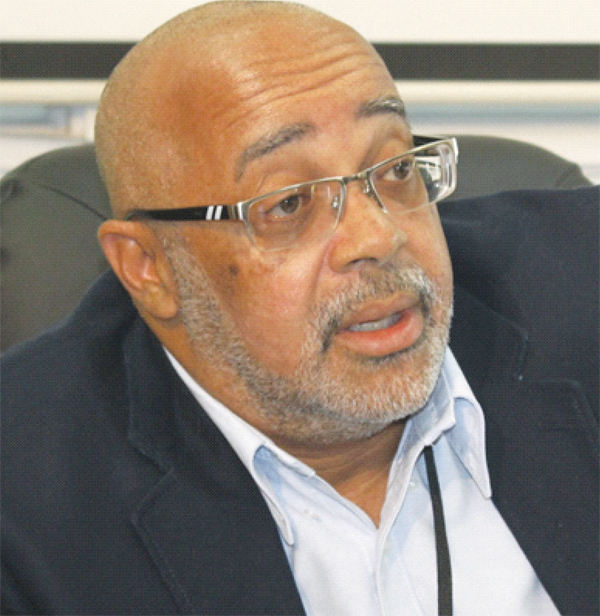
OECS Director General, Dr. Didacus Jules stated that in response to the COVID-19 pandemic, the unit has had to re-strategize its social programs to best adapt to the increasing demands in these times.
“It is now necessary to ensure that we have an integrated approach and a multi-faceted response to the current conditions that we face and the solutions that we try to put in place,” he asserted.
Dr. Jules said the participating ministers from the sub-region focused their attention on “matters relating to social protection in a holistic manner, looking at issues on poverty, all of the relevant components of what constitutes social protection …and also looked at the implications of these policies and the connections of these policies with other areas.”
The OECS Director General underlined the areas of agriculture, food security, and nutrition as the issues under close scrutiny, especially in these current times of crisis. “The approach being taken by the OECS commission, moving forward, is not to look at initiatives in silos within the portfolios that they occur, but to look at them in relation to other areas so that we can create synergies to ensure that every effort we make is driven by corresponding initiatives in other sectors that can strengthen the overall effort,” he said.
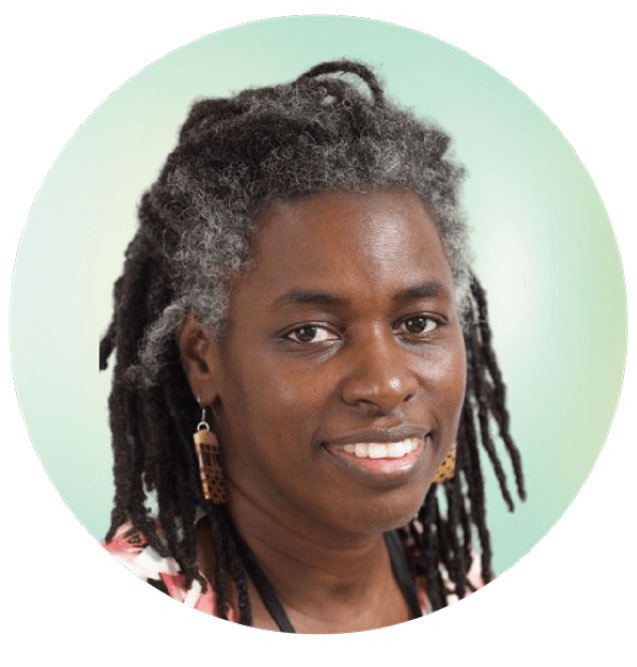
Amidst the several projects on stream and in its quest towards social cohesion and development in the OECS region, has the OECS Social Development Unit initiated dialogue at the community-based level?
Dr. Carlene Radix, Head of the Human and Social Division – OECS urged members of the community to continue contributing to help reform the social interventions.
“We need to improve our dialogue with the people that are most affected by the policies and systems that we create,” said Dr. Radix.
She added that presently, this issue is especially highlighted and compounded by the issues of the pandemic.
Ultimately, said Dr. Radix, the implementation of new strategies in the OECS over the next six years “will prioritize engagement, taking a holistic look at how we engage all the relevant stakeholders in our communities and re-look at how we engage faith-based organizations and civil society, community leaders, and ensuring that we also focus on the family level unit.”
The council meeting also involved consultations with youth representatives and a wide range of stakeholders “who have benefited or participated in the Juvenile Justice Reforms, as well as, stakeholder reviews on current social policy and programs, and that included the beneficiaries,” Dr. Radix disclosed.
She said special allocation was also made to cater for elderly persons as “this is one group that we have to include engagement on.”
While addressing the issue, Dr. Jules indicated that for the OECS to get involved in such an initiative, “dialogue at the national level has to be conducted …with the national authorities.”
However, he said, the OECS encourages “the creation of their own networks, so that it is important , especially in the realm of civil society that people organize themselves so that they can create an ‘organised voice’.”
Such an initiative will require a cohesive effort from members of the community, and the input of elders would greatly assist in helping to provide support for this fundamental undertaking.
It is noted that, Human and Social development in the Eastern Caribbean is one of the key challenges that the OECS Commission has to address. Human and Social development policies aim to improve the well-being and quality of life of all citizens in the OECS, and to enable them to reach their full potential.
Dr. Jules added that the unit has interacted with elder persons from the communities and as new associations are being formed with retirees “it would be good for those associations to organize themselves, so there’s a lot that they can do without depending on government to do.”
He proposed, for instance “that a Retirees Association can, as it’s done in Barbados, look to get senior discounts for certain goods and services …and on the health front, we can look to organize certain benefits for retirees.”
Dr. Jules continued, “If these groups were well organised at the national level, and want to constitute themselves into an OECS network of retired persons, we would do everything possible to assist in that process of the formation of such a body.”
He said that a well-organized elected body governed by a constitution “will be recognized by the OCES Commission as being a bona-fide entity.
“On their own, whatever brain storms and ideas and consultations they do with their members and they prepare concept papers and ideas and recommendations, they can find themselves on the agenda of a ministerial to come to meet with ministers to propose the changes that constituency would like to see happen in that space .”
Moving on, Dr. Jules asserted: “We need to develop a culture going forward of ‘People Empowerment’, where they take responsibility for themselves and government be advised as to the conditions and the facilities , and the things that can be done in order to help people to (be able) help themselves.”



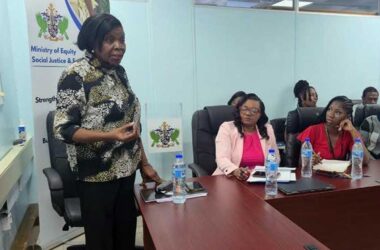

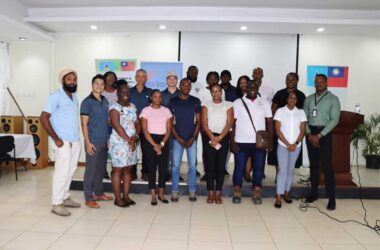
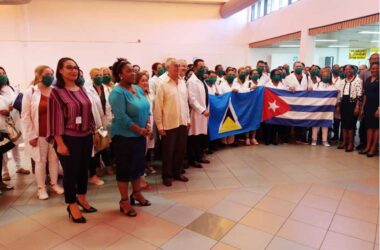

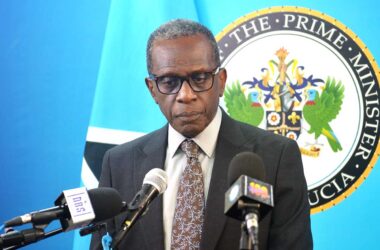
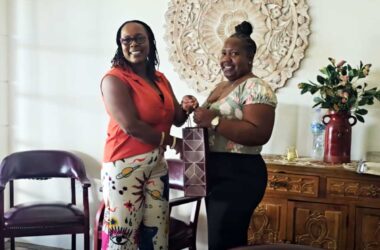
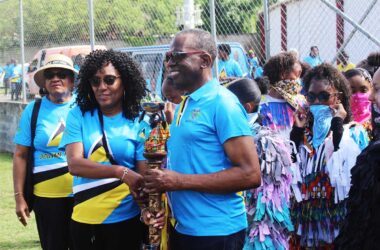

![Amy Stephen [Photo credit: Community Tourism Agency]](https://thevoiceslu.com/wp-content/uploads/2026/01/Amy-Stephen-feat-380x250.jpg)
